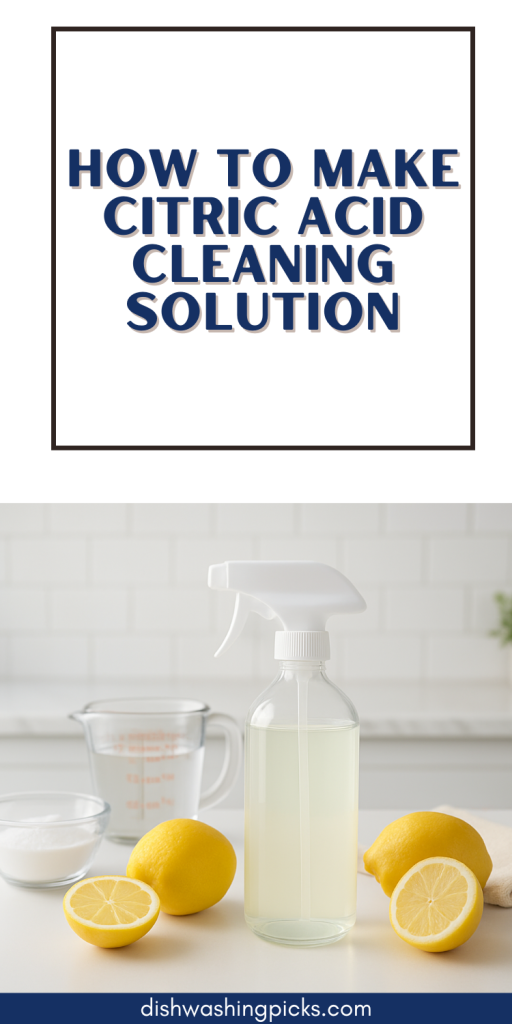
Why Citric Acid?
Picture this: you’re sipping lemonade on a hot day, and while you’re enjoying that tangy zing, what you don’t realize is that citric acid—the very stuff that makes lemons sour—is also a powerhouse cleaner. Yep, the same natural compound that puckers your lips can cut through limescale, soap scum, and even those annoying water stains on your faucet.
Now here’s the kicker: making your own citric acid cleaning solution at home is ridiculously easy. It’s eco-friendly, budget-friendly, and honestly, it feels pretty cool to swap out chemical-heavy sprays for something so simple. Let’s break it down.
The Basics: What Makes Citric Acid Special
Before we start mixing, let’s answer the obvious: why citric acid?
- It’s natural. Extracted from citrus fruits, though most store-bought versions are food-grade and come in powdered form.
- It fights hard water deposits. Limescale in your kettle? Soap scum in your shower? Citric acid eats it right up.
- It deodorizes. Got funky smells in your sink drain? Citric acid solution can help neutralize them.
- It’s safer than bleach. No harsh fumes, no corrosive side effects (unless you go way too strong).
So, in short: it’s like the Swiss Army knife of natural cleaners.
Ingredients and Tools
You don’t need a lab setup—just a few everyday items:
- Citric acid powder (food-grade, usually sold in baking or canning sections, or online)
- Warm water (helps dissolve the powder)
- A spray bottle or jar
- Measuring spoons
- Optional: a few drops of essential oil (for scent)
Pro tip: Store your citric acid in a sealed jar—it loves to clump if left open to humidity.
The Recipe: Mixing It Up
Here’s the simple formula:
General cleaning solution:
- 2 tablespoons citric acid powder
- 1 cup warm water
Stir until dissolved and pour into a spray bottle. That’s it. No fancy steps.
For tougher jobs (like limescale in kettles):
- 1/4 cup citric acid
- 4 cups water
Boil the mixture in the kettle, let it sit for 15–20 minutes, then rinse thoroughly. Goodbye, crusty deposits!
Think of this as your “choose your strength” cleaner—milder for everyday wipe-downs, stronger for the tough stuff.
How to Use It: Real-Life Applications
Here’s where it really shines:
- Kitchen: Clean coffee makers, kettles, and stainless steel sinks.
- Bathroom: Spray on shower doors and tiles to melt away soap scum.
- Laundry: Add a tablespoon to your wash to soften fabrics and fight odors.
- Around the house: Wipe down faucets, glass, and even plastic containers with stubborn stains.
One caveat: avoid using it on natural stone (like marble or granite). Acid and stone? Not friends.
Storytime: The “Cloudy Kettle” Rescue
Imagine making tea for guests, only to pour water from a kettle lined with cloudy white limescale. Not exactly appetizing, right? One tablespoon of citric acid in boiling water, a little soak, and your kettle looks brand-new. Bonus: your tea tastes fresher too—no weird mineral aftertaste.
Simple, Safe, and Seriously Effective
Making your own citric acid cleaning solution isn’t just about saving money (though it definitely does that). It’s about taking control of what goes into your home. A couple of spoons of powder, some water, and suddenly you’ve got a natural cleaner that rivals the chemical giants.
So next time you’re tempted to reach for a neon-colored bottle at the store, ask yourself: why not let lemons (or, well, citric acid powder) do the work instead?
